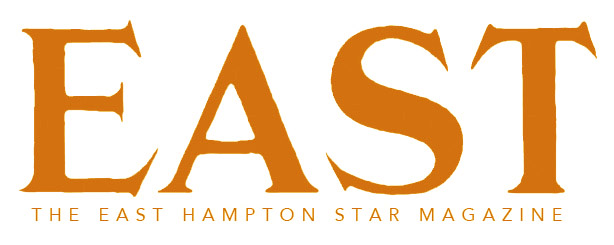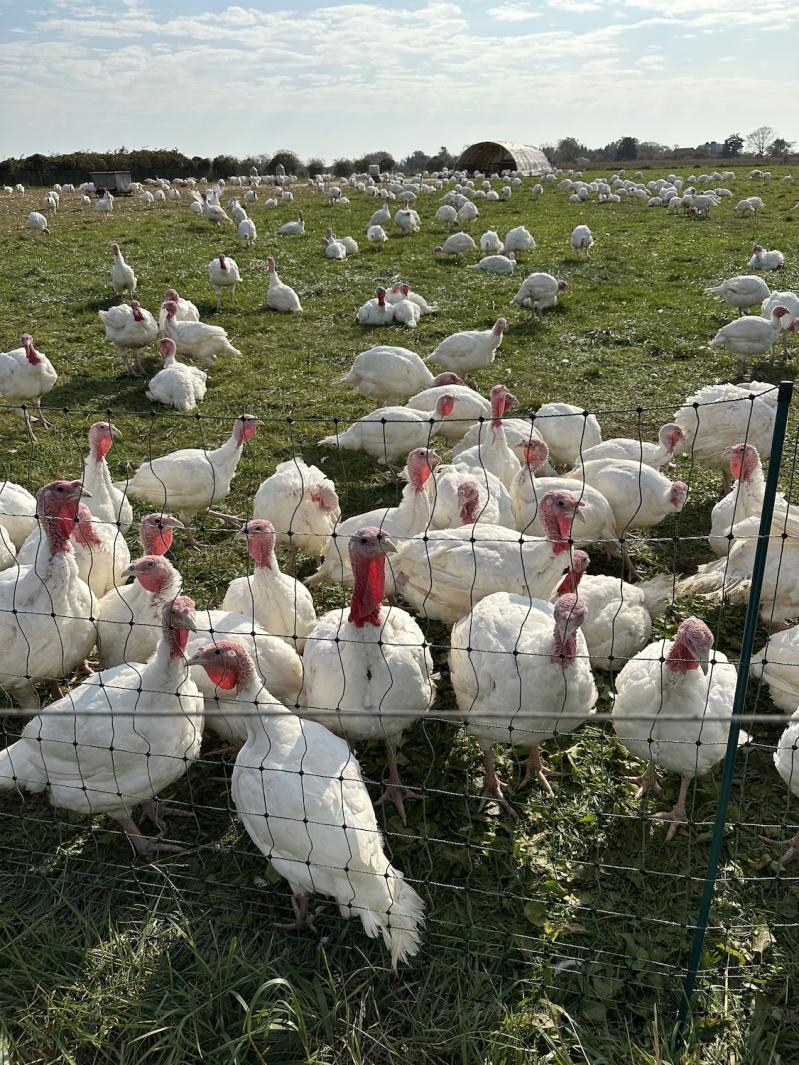Those who frequently drive along Noyac Road will be familiar with a pair of signs along the route: a chicken and an egg. They’re just around the bend from the marina at Wooley Pond and welcome people to North Sea Farms. It’s actually a rooster and not a chicken, hinting at the lighthearted farm humor at play.
“Did you notice the turkeys when you pulled in the driveway?” asks Richie King, who owns the farm with his wife, Robin.
North Sea Farms has been family-run since 1945 and currently occupies 12 acres not far from the Causeway over Wooley Pond. At one time, it was also a dairy farm. It’s the very same spot where Richie’s sister, Kathleen King, launched the homemade cookie business that eventually became Tate’s Bake Shop.
Raising turkeys for Thanksgiving has been a tradition there for nearly 25 years. A thousand white turkeys spent the summer and fall a few hundred feet straight back from the driveway. Their white plumage looks like a snowdrift through the slats of a chicken wire fence.
“This is an especially curious bunch,” King says.
The turkeys shuffle close to the fence to watch him approach. They peck enthusiastically at some lettuce leaves; perhaps they’re wondering if more food is on the way. They’re poised and curious, holding their heads high on their long necks. Cocking their heads to angle their eyes for a better look, there’s something cute about them. Their ruffled, brilliant white feathers make them look like chubby egrets, except with rosy-pink wattles framing their oblong visages. Compared to the dark, mottled feathers of the wild turkeys we are used to seeing around here, these turkeys look both cuter and . . . tastier.
There’s something mesmerizing about watching the turkeys mill around their yard. There’s a subtle flow as they wander from the feed bins and water into the barn and then to the dappled sun of the yard.
They grow up so fast. These birds have traveled a lot in their young lives. Eggs laid in Canada were driven to a farm in Flemington, N.J. A thousand day-old poults, as turkey chicks are called, fit into King’s Subaru in mid-July when he picked up the hatchlings. Some years, he has to drive through the wee hours of the night to make the round-trip journey. On the plus side, there’s less traffic at that hour.
Poults need warmer temperatures than chickens and require an otherwise uncomfortable 95-degree climate for the first two weeks. They start to take over more space, too. By mid-October, they filled a big, red barn and sunny, fenced-in yard at the farm.
Cooing amongst themselves, they’re quieter and much calmer than one might expect. They sound more like mourning doves than turkeys. Chickens have a reputation for being more restless and alarmed by things than turkeys are, but, then again, they have a lot to worry about, especially predators. “The fox and hawks leave the turkeys alone,” says King. “Turkeys are too big for them to consider.”
Earlier this year, a fox or foxes killed 100 chickens at North Sea Farms, just down the slope from the turkey barn. Hawks occasionally take a chicken but leave the turkeys unharmed. All around the farm property, a prolific crop of new-build house construction sites is displacing wildlife from the woods, and King suspects the foxes are living in the copse at the edge of a field.
Female turkeys are more docile than males, and so while the intent is to raise a brood of females, a few toms are yet in the mix. They’re easy to spot, even to an inexpert eye, as they’re louder and livelier, with slightly deeper red wattles. Fluffing their wings and tail feathers like peacocks — who do they think they are? — the males show off for the ladies, who largely ignore them. King says that in recent years, there have been exactly five males. But who can really keep track of the toms amongst a thousand?
By late November, these birds will become the centerpiece of Thanksgiving dinner, and most will weigh between 10 and 30 pounds as a roast. Some might think it unsettling to realize these inquisitive birds will end up in the oven. Over the three days running up to Thanksgiving, most of the birds are snapped up. King recognizes a lot of repeat customers: Some buy turkeys every year, while others order every other year when it’s their turn to host the holiday feast. Any birds not sold ahead of time will be cut up to sell as individual parts. A turkey breast is a good cut to grill.
Until then, they seem relaxed in the sun, enjoying their simple if brief life on the King family farm.

